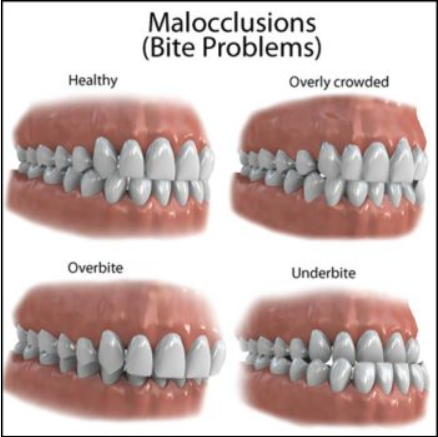Overbites and underbites are both types of malocclusion. This refers to the misalignment of the teeth and jaws. They occur when there is an imbalance in the relationship between the upper and lower teeth. It causes one set to protrude further than the other.

While both overbites and underbites can affect a person’s appearance, they can also lead to functional problems. Such as difficulty chewing and speaking, jaw pain, and even tooth decay. But what causes these dental dilemmas, and can they be prevented? Let’s chomp down on the facts about overbite vs underbite today!
Genetics
A family history of dental conditions, such as overbites or underbites, can increase the probability of inheriting these issues. If either your parents or grandparents were affected by these conditions, the chances are higher that you might also experience similar dental challenges.
This genetic predisposition highlights the importance of monitoring. Also, possibly seeking early intervention to manage or mitigate the development of these conditions.
Thumb Sucking and Pacifier Use
Childhood habits such as thumb sucking or the use of pacifiers can lead to an imbalance in the growth of the jaw and teeth. This results in conditions like malocclusion types. From an early age, many children find comfort and security in these practices.
Parents and guardians must monitor and discourage these habits. Prolonged reliance on thumb sucking or pacifiers can exert unnecessary pressure on the teeth and jaws. It can influence their development and alignment.
Trauma or Injury
Accidents happen, especially during childhood. Falls and blows to the mouth or face can lead to serious dental injuries. The most common being chips, fractures, and knocked-out teeth.
In such cases, it’s essential to seek immediate dental care. Delaying treatment can result in further damage and complications. A dentist will be able to assess the extent of the injury and provide appropriate treatment. This affects jaw development and can result in bite misalignment.
Good Oral Hygiene
Establishing good oral hygiene habits from a young age is crucial for maintaining healthy teeth and gums. Children should start brushing their teeth as soon as they have baby teeth, usually around six months old.
Parents ought to assist their children in brushing their teeth until the kids can effectively do it themselves, typically around 8 to 10 years old. It’s also important to teach children how to floss properly and make it a part of their daily routine. If flossing is too tedious for them, Cosmetic Dentistry Midtown Manhattan recommends using interdental brushes instead.
Regular Dental Checkups
Dental checkups are an essential part of maintaining good oral health. Parents should schedule biannual visits for their children starting at age one or when the first tooth erupts. Make sure to check out the benefits of early orthodontic treatment for children here.
During these visits, the dentist will check for any signs of decay or other oral health issues and provide a thorough cleaning. Regular dental checkups can help prevent more serious problems from developing in the future.
Explore How Overbite vs Underbite Develop and Ways to Prevent Them
In conclusion, overbite vs underbite are common dental issues that can lead to serious problems if not addressed early on.
Regular dental checkups and proper nutrition are key in preventing these issues from developing and ensuring optimal oral health for children. With a little bit of knowledge and effort, parents can help their children maintain healthy teeth and avoid future dental problems.
So make sure to schedule those biannual visits with your child’s dentist and encourage them to maintain a balanced diet for a lifetime of healthy smiles!
Did you find this article helpful? Check out the rest of our blogs for more!



